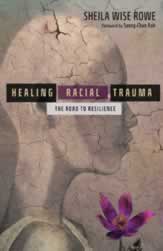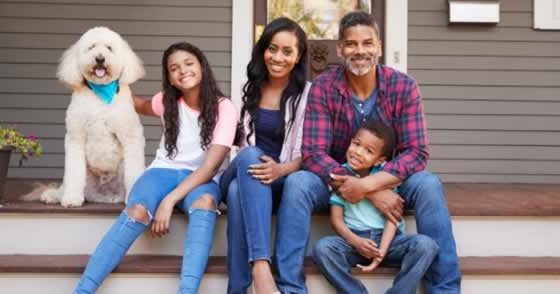By the time Theo and Grace reached the end of their third year of marriage, it was clear they were in trouble. There was something deeper going on beneath their sighs and cutting remarks. I have counseled countless married couples like them, stuck in silence and pain. They couldn’t identify exactly what caused the slow disintegration of a once vibrant marriage. African Americans like Theo and Grace and other couples of color navigate through life, unaware of how racial trauma is having a devastating impact on their marriages.
What is Racial Trauma
Racism and racial trauma are real. When people of color experience a stressful racist incident, whether personal or vicarious, it may be perceived as a threat. So our brains are wired to take immediate action by preparing our bodies to fight or flight. If the danger or traumatic stress is not dealt with, our brain and body don’t fully stand down. This, in turn, feeds our traumatic stress and after subsequent racist incidents, we get stuck in an endless loop with unaddressed racial trauma. There are numerous ways that recent and historical racial trauma can affect our spiritual, emotional, physical, and relational health. Research has shown that historical and trans-generational racial trauma may be transmitted through our DNA, family dynamics, or storytelling. Our ancestors had to find a way to cope with brutalities such as enslavement, Jim Crow, Japanese internment, and First Nation genocide. Some found it easier to “disconnect their head from their heart” or emotionally detach rather than face the unbearable pain, loss, and racial trauma from a family member being sold off on a whim, incarcerated or murdered.
Later on, our family or community reinforced this way of dealing with personal and systemic racism and racial trauma. A lie was perpetuated that our pain and shame would go away if we emotionally detached from our feelings, engaged with others from our minds or lashed out in rage. There has been a recent uptick in daily microaggressions, racist incidents, and vicarious racial trauma. These ongoing slights and huge travesties of justice accumulate over time and result in people of color carrying compounded racial trauma. Even if we are unaware of this dynamic it is exhausting and contributes to relational dysfunction.
How Racial Trauma Affects Marriages
There have been countless times when, for no apparent reason while driving, Theo is pulled over and humiliated by the police or tailed by store security while shopping. Grace bears stress from being hypervigilant about the safety of her Black husband. She feels she has to always be strong and yet not too strong, or she will be accused of being the stereotypical angry Black woman. Both Grace and Theo regularly face racism and racial bias at work and have been denied access and promotions. The couple carry racial trauma from these personal experiences, and vicariously from watching footage of the killing of unarmed Black people, xenophobic attacks on immigrants, and the impact of mass incarceration. They are exhausted, and emotional detachment seems to enable them to function from day-to-day. But the pain and racial trauma they carried affected how they related to each other, the Lord and other people. On the outside, Theo and Grace seemed approachable and confident; however, there was a barrier between themselves and others. They carried fear and shame that they would be exposed as needy. They were like the woman at the well written about in John chapter 4. The woman comes to the well to draw water, but Jesus tells her she really needs a different kind of water. He looked past her hiding and saw the woman behind the mask of bravado. Theo and Grace tried to cope by wearing a different type of mask. They minimized and denied the pain from each racist incident and the shame that whispered they were not good enough. They took their frustration out on each other and what began as a subtle dance of distancing from one another morphed into several sleepless nights in separate beds. Soon they were so emotionally detached from each other that they were cut off from feeling the full range of their own emotions. As long as Theo and Grace continued to try to manage their pain by isolating, intellectualizing, or lashing out, they remained emotionally detached. Meanwhile, racial trauma continued to rule their lives and damage their marriage.
How Can Our Marriages Heal?
Jesus calls us out from emotional detachment because it sets us up to perpetually reject each other. Just like the woman at the well, we need a deeper love. In 1 Corinthians 13: 4-7 we see that we are capable of giving the kind of love that is patient, kind, and not self-focused. And we are encouraged to receive that kind of love. Jesus is the one perfect, unfailing source and model of comfort, strength, and love that is deeper than any human love. If our marriages are to be healed, we have to go to him, the real source of healing. Grace and Theo had to come out of denial and lament in prayer about the wounds, anger, and grief they carried from racism. They asked Jesus to heal their pain, deliver them from shame, and set them free to again believe that there was hope for their marriage.
Theo and Grace also received support from others. They attended a marriage retreat which helped them to slowly open up and vulnerably share how they’d been wounded by racism and in turn, had hurt each other. They discovered that they were not as alone as they once believed. Grace and Theo realized that they could actually help each other to heal, and grow. As they persevered and prayed with and for each other, they experienced the love and care of the Lord being released. Over time their marriage transformed into a healthy and emotionally rich one.
Like Theo and Grace, we will face ongoing bias, racism and microaggressions, yet there are things we can do that may help us to stay emotionally connected to our spouse:
- Prioritize time together in prayer, worship, and the scriptures. This will help deepen our relationship with the Lord and each other.
- Grow in empathy, recognize that our spouse may be carrying hurts that we aren’t seeing. Be a safe person for that our spouse can openly share their pain without being shamed.
- Look for opportunities to love and honor each other to counteract the disrespect and dehumanizing that comes from ongoing racism and microaggressions.
- Value and prioritize our spouse and marriage with our time and finances.
- Join a confidential, supportive, and prayerful circle of friends whom we can open up to about experiences of racism and racial trauma.
- Find ways to simply have fun and experience joy.
- Regularly seek out marriage or pastoral counseling, conferences, or retreats to help strengthen our marriages.
- Prayerfully discern how to combat racism and microaggressions and empower our family and community to pursue social justice.
Copyright (c) 2019 Sheila Wise Rowe, used with permission.












